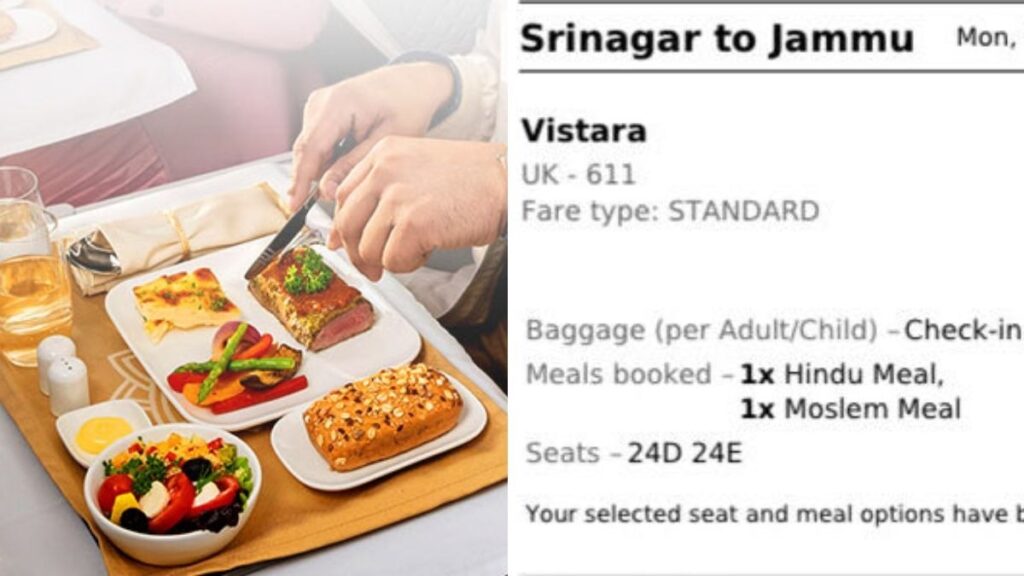Food items are known for their taste. Taste is not dependent on hygiene. The reason for street food being the most popular is also the taste. Taste is a very personal matter, but sometimes beliefs or religion, and sometimes politics also intrudes into it – like the controversy that erupted in Uttar Pradesh during the Kanwar Yatra.
Then Muzaffarnagar police issued an order asking to write the name of the owner on the shops. And then such an order came for the entire state. This system was made mandatory for the shops coming on the way of Kanwar Yatra. Under pressure, some shopkeepers quickly implemented the order.
Politics also intensified in no time. Parties like Samajwadi Party and Congress started making statements against the BJP government of UP and Chief Minister Yogi Adityanath. As soon as the matter reached the Supreme Court, a ban was imposed with immediate effect. The matter came and went. The controversy ended with the Kanwar Yatra. Thankfully, no one said come early next year.
The taste of any food item is felt through the eyes and nose before it reaches the tongue. Aroma and texture actually represent the welcome notes of taste. But if someone is prejudiced or has some misunderstanding, then all these things are left behind.
Recently, due to a misunderstanding in a case, a series of questions and answers have started regarding food items. This case is related to the food served during the flight, in which many such things have come to light about which even the people considered frequent-flyers know very little. This is known from the reaction of people on a post on social site X.
Who cares if ‘Hindu food’ or ‘Muslim food’ is served on airlines?
Before knowing the answer, yes or no, you have to understand the question properly. This question has been raised by a journalist, and detailed answers have been received – and both these questions and answers are quite interesting.
The question asked on social site X while tagging Vistara Airlines had a serious allegation along with it – ‘Are you guys going to communalise the vegetables, chicken and passengers during the flight?
A screenshot of the ticket has also been shared with the post. It is from Srinagar to Jammu, on which the selected food choices can also be seen – ‘Hindu Meal’ and ‘Muslim Meal’.
Also, Vistara airlines have been asked, ‘What is this mess that in your flights, vegetarian food is a Hindu meal and chicken is a Muslim meal. Who told you that all Hindus are vegetarians and all Muslims are non-vegetarians. Why are you imposing your likes and dislikes of food items on people? Who gave you this right?’
In her post, the journalist writes, I was so shocked by this behavior that I ordered both of them to break this trend. Along with this, the Civil Aviation Ministry has been tagged in the post and an investigation has been demanded.
When the question is raised, the question arises whether communalism is really being served in flights? The answer is, absolutely not. Even before the government, some experts and common people have given the answer. The tone of some people is questioning, as if this question should not be raised at all. Because this question has been raised due to lack of information.
These are the reasons behind naming ‘Hindu Bhoj’ and ‘Muslim Bhoj’:
Actually, special codes for food items are set by IATA i.e. International Air Transport Association for airlines, and names like Hindu meal or Muslim meal are not given by Vistara or any other airline. IRCTC, which makes arrangements for food in railways, is also making similar arrangements which include Jain food.
IATA prepares such codes for airline and catering services, and the ground staff manages and further expands them accordingly. And about two dozen such categories have been created to maintain uniformity in airline services.
On social media itself, Sanjay Lazar, CEO of Avilaj Consultants, has said that the code prescribed for Hindu meal is HNML, but this does not mean that it must necessarily be vegetarian food. It can also be a non-vegetarian item – yes, it is not a halal item.
And in the same way, one should not take a Muslim meal with MOML code as a guarantee that it will be non-veg, but it should be taken with certainty that it will be Halal.
Similarly, Sanjeev Kapoor, a former officer of Jet Airways, has also clarified the picture from his side and said that this is the practice being followed at the international level. However, he also considers it outdated, and his advice is that these things should be updated and made modern.
During the question-answer session, a list has also been shared in which codes of 24 categories of food have been given. For example, VGML means vegetarian vegan food, which contains neither any animal product, nor eggs nor dairy products. Similarly, VJML code is prescribed for vegetarian Jain meal, which contains neither any animal product or by-product, nor root vegetables. There is a code for food items made with eggs and dairy, VLML i.e. vegetarian lacto-ovo meal.
By the way, food items belonging to Halal category were also in the news a few days ago. The Uttar Pradesh government has banned food products related to Halal certificate. According to the order of the state government, the manufacture, storage, distribution and sale of Halal certified food products has been banned. Yes, medicines and cosmetics have been kept completely out of the scope of the ban.
Source (PTI) (NDTV) (HINDUSTANTIMES)
